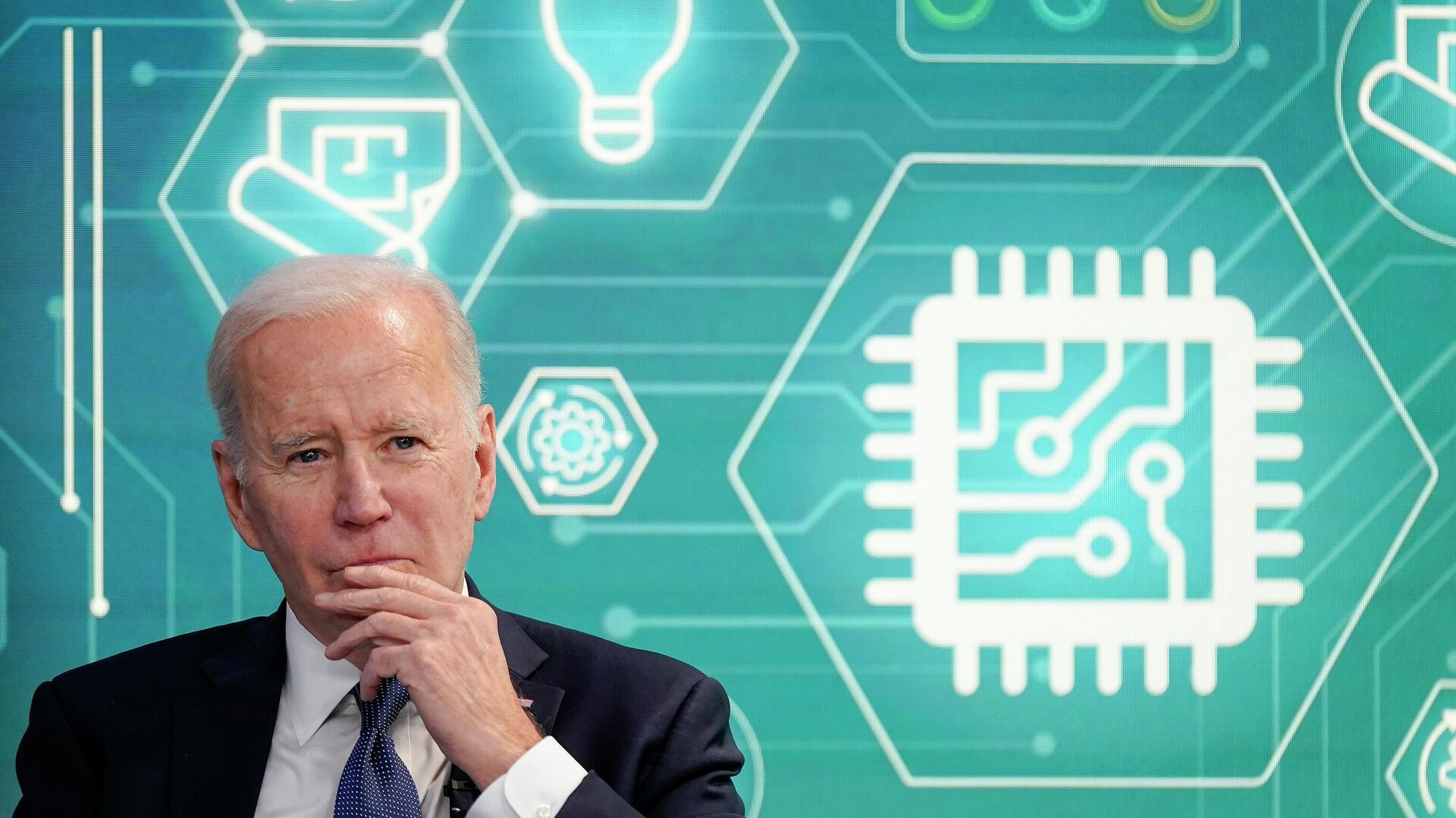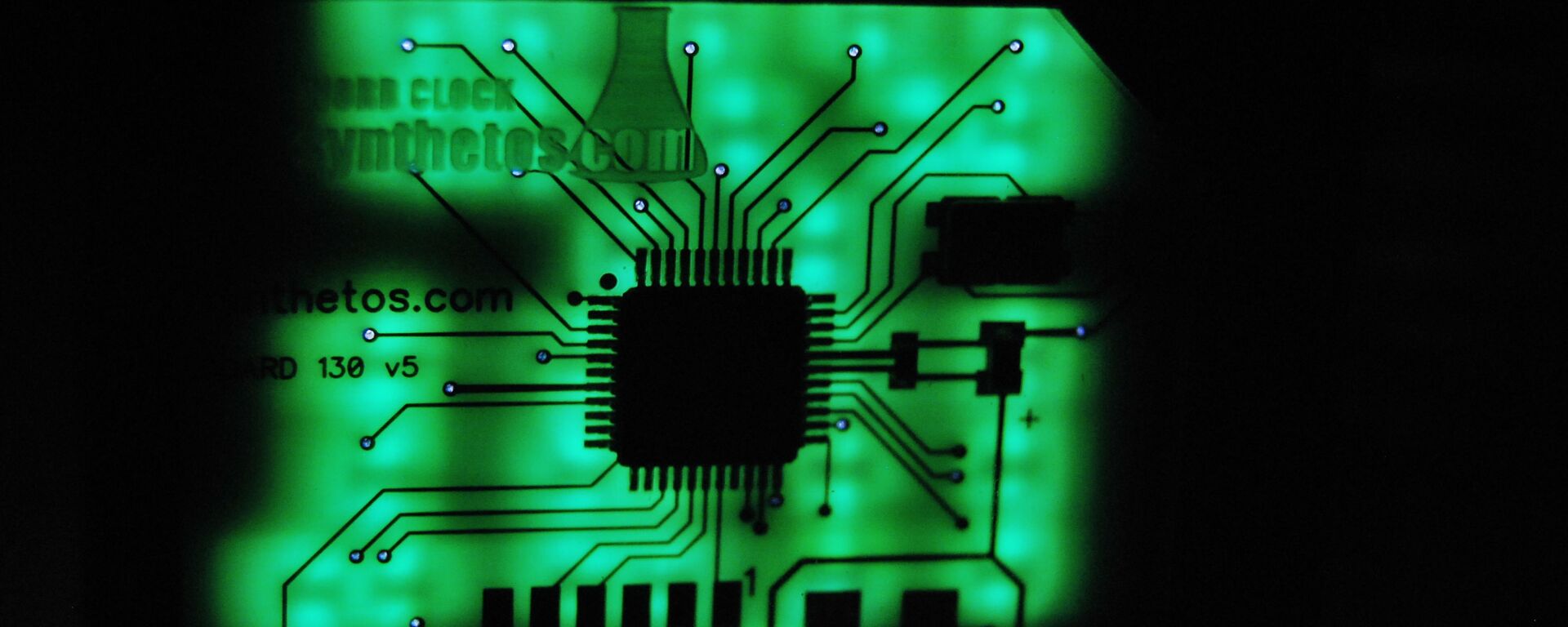https://sputnikglobe.com/20230914/us-restrictions-on-chip-exports-to-china-violate-market-rules-1113371807.html
US Restrictions on Chip Exports to China Violate Market Rules- Beijing
US Restrictions on Chip Exports to China Violate Market Rules- Beijing
Sputnik International
The US measures to limit microchip exports to China violate market rules and lead to fragmentation in the global semiconductors market, Chinese Commerce Ministry spokesman He Yadong said on Thursday.
2023-09-14T13:47+0000
2023-09-14T13:47+0000
2023-09-14T13:58+0000
economy
us
us-china relations
china
microchip
https://cdn1.img.sputnikglobe.com/img/07e6/09/01/1100260807_0:161:3071:1888_1920x0_80_0_0_8c56868051685fe609092d64c4398afa.jpg
In early September, US Commerce Secretary Gina Raimondo said that the United States would stick to its hardline stance on denying China cutting-edge microchips as technological developments may be used to boost Beijing's military capacity. However, the US does not plan to completely ban China's access to its chips, she added. "The US measures to restrict chip exports to China violate market rules and lead to fragmentation in the global semiconductors market, which not only harms lawful rights and interests of Chinese companies, but also significantly affects the interests of semiconductors manufacturers throughout the world, including in the US," He said. China is the largest semiconductors market globally, therefore, by imposing restrictions on normal trade, the US will harm itself as well as other market players, the spokesman added. In early August, the White House announced that US President Joe Biden signed an executive order that authorized the Secretary of the Treasury to regulate certain US investments into Chinese entities engaged in activities involving national security sensitive technologies in three sectors: semiconductors and microelectronics, quantum information technologies, and certain artificial intelligence systems.
https://sputnikglobe.com/20230803/advanced-microchips-should-be-shared-endeavor-to-fight-global-warming-not-target-of-us-china-feud-1112376744.html
china
Sputnik International
feedback@sputniknews.com
+74956456601
MIA „Rossiya Segodnya“
2023
Sputnik International
feedback@sputniknews.com
+74956456601
MIA „Rossiya Segodnya“
News
en_EN
Sputnik International
feedback@sputniknews.com
+74956456601
MIA „Rossiya Segodnya“
Sputnik International
feedback@sputniknews.com
+74956456601
MIA „Rossiya Segodnya“
us-china tensions, us-china trade war, us-china relations, microchip exports, market rules violation
us-china tensions, us-china trade war, us-china relations, microchip exports, market rules violation
US Restrictions on Chip Exports to China Violate Market Rules- Beijing
13:47 GMT 14.09.2023 (Updated: 13:58 GMT 14.09.2023) BEIJING (Sputnik) - The US measures to limit microchip exports to China violate market rules and lead to fragmentation in the global semiconductors market, Chinese Commerce Ministry spokesman He Yadong said on Thursday.
In early September, US Commerce Secretary Gina Raimondo said that the United States would stick to its hardline stance on denying China cutting-edge microchips as technological developments may be used to
boost Beijing's military capacity. However, the US does not plan to completely ban China's access to its chips, she added.
"The US measures to restrict chip exports to China violate market rules and lead to fragmentation in the global semiconductors market, which
not only harms lawful rights and interests of Chinese companies, but also significantly affects the interests of semiconductors manufacturers throughout the world, including in the US," He said.
China is the largest semiconductors market globally, therefore, by imposing restrictions on normal trade, the US will harm itself as well as other market players, the spokesman added.
In early August, the White House announced that US President Joe Biden signed an executive order that authorized the Secretary of the Treasury to regulate certain US investments into Chinese entities engaged in
activities involving national security sensitive technologies in three sectors: semiconductors and microelectronics, quantum information technologies, and certain artificial intelligence systems.



